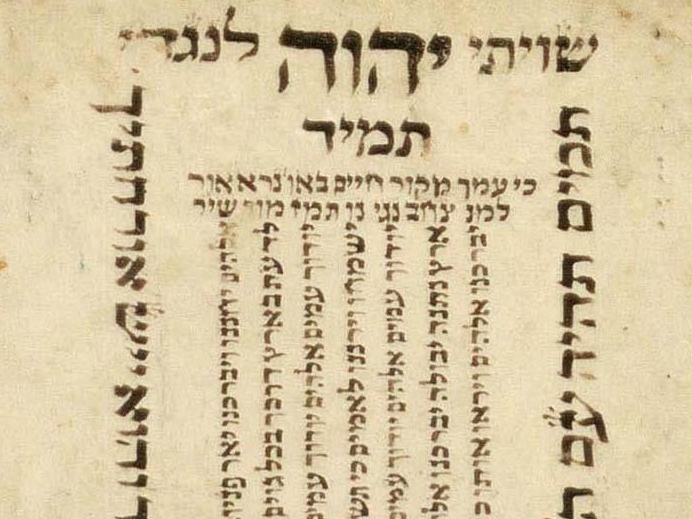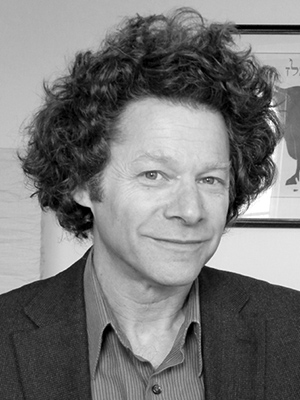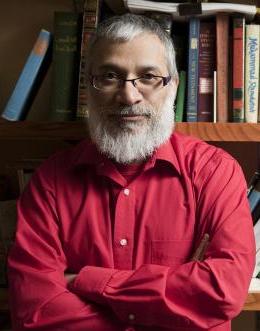HUMS 212, The Mystical Poetry of Judaism and Islam

Course Description:
Poetry and song run through the heart of both Judaism and Islam, and so-called mystical verse plays a vital role within both traditions. This class looks at key works from both of these bodies of verse, on their own terms and in relation to one another. It also examines the cultural and historical matrices that gave rise to the poetry.
Subjects range from alphabets of creation, the poetry of ascent, wine poetry, and the divine nature of the beloved to negative theology, interacting planes of macrocosm and microcosm, antinomian breakthrough, and, above all, poetry’s power to bring about critical transformations of consciousness.
Readings are drawn from the Bible, Hebrew visionary poetry of Late Antiquity (Poems of the Palaces, Book of Creation), pre- and early-Islamic material, the Qur’an, the Arabized Hebrew of two major Andalusian poets, Solomon Ibn Gabirol and Judah HaLevi, the syncretic Sufism of Ibn al-‘Arabi and of the great Persian poets Rumi and Hafez, the extensive Kabbalistic tradition that developed in 13th-century Spain and 16th-century Palestine, the hybrid liturgy of the Muslim-Jewish Donmeh of Salonika (and their Turkish precursors), Ghalib’s Urdu ghazals, Kabir’s Bhakti-influenced vernacular Hindi poetry, and secular transformations of this mystical material into the modern era. All work is read in English translation. Material in the original languages is available to interested students.
Led by:
 |
Poet and translator Peter Cole has been affiliated with Yale since 2006 and currently teaches classes each spring in the Comparative Literature Department and Judaic Studies. He is the author of five books of poems, most recently Hymns & Qualms: New and Selected Poems and Translations(FSG). Cole’s many volumes of translation from Hebrew and Arabic include The Poetry of Kabbalah: Mystical Verse from the Jewish Tradition (Yale), The Dream of the Poem: Hebrew Poetry from Muslim and Christian Spain, 950-1492 (Princeton), Taha Muhammad Ali’s So What: New & Selected Poems 1973-2005 (Copper Canyon), Aharon Shabtai’s War & Love, Love & War: New and Selected Poems (New Directions), and the novels of Yoel Hoffmann (New Directions). He has also written a book of non-fiction, Sacred Trash: The Lost and Found World of the Cairo Geniza (Schocken/Nextbook), with Adina Hoffman, and edited Hebrew Writers on Writing (Trinity). Cole has received numerous honors for his work, including fellowships from the NEA, the NEH, and the Guggenheim Foundation, the National Jewish Book Award for Poetry, the Association of American Publishers’ Hawkins Award for Book of the Year, the PEN Translation Award for Poetry, the American Library Association’s Brody Medal for the Jewish Book of the Year, and a TLS Translation Prize. He is the recipient of a 2010 Award in Literature from the American Academy of Arts and Letters, and in 2007 was named a MacArthur Fellow. He is currently a co-editor of Princeton University Press’s Lockert Library of Poetry in Translation, and divides his time between Jerusalem and New Haven. |
 |
Professor Shawkat Toorawa’s scholarly interests include: classical and medieval Arabic literature, especially the literary and writerly culture of Abbasid Baghdad; the Qur’an, in particular hapaxes, rhyme-words, and translation; the literatures of Mauritius; modern poetry; and SF film and literature. Professor Toorawa books include the study Ibn Abi Tahir Tayfur and Arabic Writerly Culture: a ninth-century bookman in Baghdad (RoutledgeCurzon 2004), an edition and collaborative translation of Ibn al-Sa’i’s 13th-century Consorts of the Caliph: Women and the Court of Baghdad (NYU 2015), and the edited anthology The City That Never Sleeps: Poems of New York (SUNY 2015). He is preparing an edition and translation of Ibn al-Marzuban’s The Superiority of Dogs to People, a 10th-century work on friendship, and the co-edited collection Arabic Belles Lettres (Lockwood, 2019) is out this year. Toorawa is active as a Director of the School of Abbasid Studies; as an executive editor of the Library of Arabic Literature (an initiative to edit and translate the premodern Arabic literary heritage); and as host of The dr T projecT. |
Testimonials:
This class has never been offered before at Yale. Testimonials come from student course evaluations of other courses taught by these two professors.
- ”Take any class you can with Peter Cole. He is hands down the best and most caring professor I’ve ever had. He gives brilliant feedback and is incredibly dedicated to his students” - Advanced Literary Translation (Spring 2019)
- “This class is absolutely extraordinary. Professor Cole invites you into the world of medieval Hebrew poetry in such an inspiring way. He’s a superb teacher and translator, and it was so clear to us that he loved his work” - Hebrew Poetry in Muslim Spain (Spring 2018)
- “If you want to learn Classical Arabic poetry with the best Professor at Yale, then take the class. None shall regret.” - Arabic Seminar: Early Arabic Poetry (Spring 2018)
- “I would recommend this course solely because of the instructor (Toorawa). Do not miss the opportunity to take one of his courses and know him. This course earns its due from his care in crafting it, and the knowledge (and wit) that pours of his mouth.” - The Arabian Nights, Then and Now (Spring 2017)